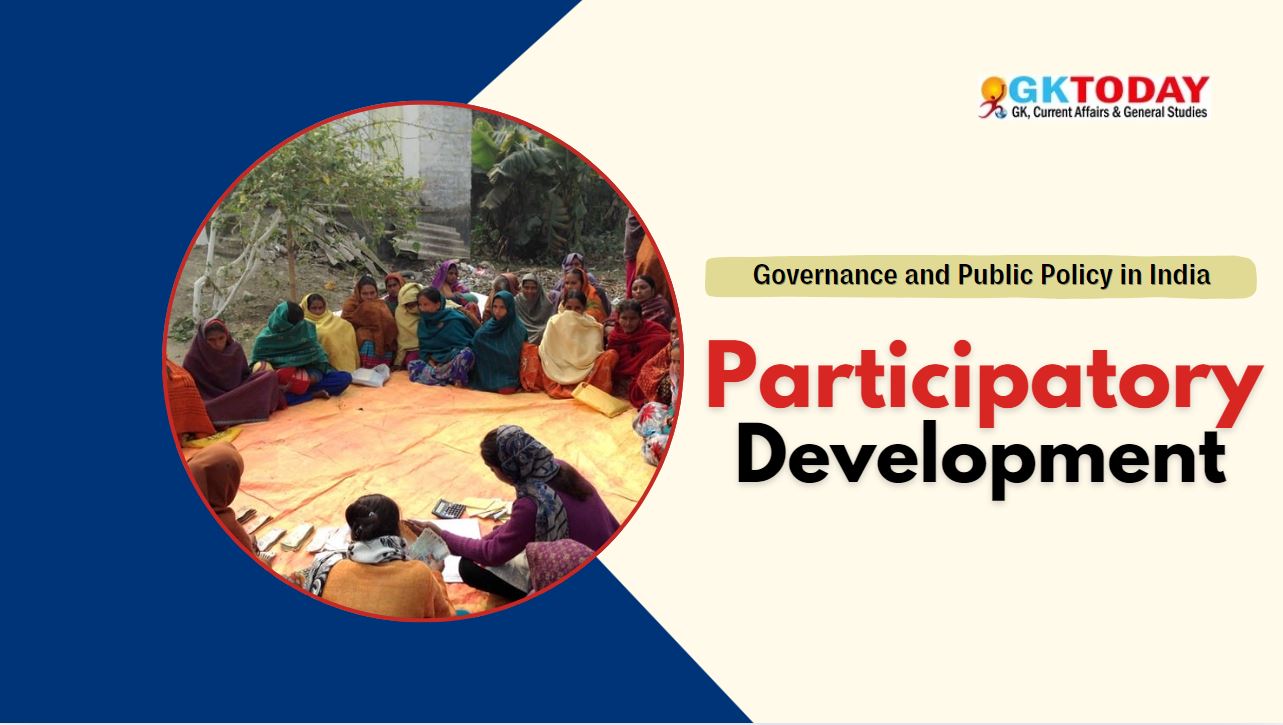Participatory Development in India – UGC-NTA NET Political Science
Participatory development is a vital approach in governance and public policy, particularly in India. It involves the active engagement of various stakeholders, especially marginalized communities, in the decision-making processes that affect their lives. This method empowers local populations, enhancing their ability to influence development outcomes.
Definition of Participatory Development
Participatory development is a strategy that prioritises the involvement of all stakeholders in the development process. It aims to empower local communities and provide them with the tools to affect change. This approach recognises the importance of local knowledge and the need for inclusive decision-making.
Key Principles of Participatory Development
- Inclusiveness: Engaging various groups, including women, minorities, and the poor, ensures diverse perspectives are considered.
- Empowerment: Building local capacity enables communities to take charge of their development.
- Sustainability: Development initiatives must be environmentally, socially, and economically sustainable.
- Transparency: Open communication and accountability are crucial for effective participatory processes.
Historical Context
Participatory development emerged in the 1970s as a response to ineffective top-down development models. It was influenced by grassroots democracy theories and social justice movements. This shift aimed to address the limitations of traditional development approaches that often overlooked local needs.
Theoretical Frameworks
- Participatory Action Research (PAR): This method involves stakeholders in the research process to identify issues and develop solutions collaboratively.
- Social Capital Theory: This theory marks the significance of social networks and relationships in facilitating collective action.
Models of Participatory Development
Participatory development can be implemented through various models:
- Community-Driven Development (CDD): This model empowers local communities to control planning and implementation of development projects.
- Participatory Rural Appraisal (PRA): PRA uses participatory approaches to enable local people to share and analyse their knowledge of their conditions.
Tools and Techniques
Effective participatory development employs several tools and techniques:
- Focus Group Discussions: These discussions collect qualitative data from community members.
- Participatory Mapping: This technique visually represents community resources and needs.
- Community Workshops: Workshops facilitate dialogue and consensus-building among stakeholders.
Role of Government and Institutions
The role of government and institutions is crucial in encouraging participatory development:
- Decentralisation: This involves transferring authority and resources to local governments, enhancing participatory governance.
- Capacity Building: Training and support for local institutions are essential for facilitating participatory processes.
Challenges and Critiques
Despite its benefits, participatory development faces several challenges:
- Tokenism: Superficial participation often occurs without genuine influence on decision-making.
- Power Dynamics: Existing power structures can undermine authentic participation.
- Resource Constraints: Limited financial and human resources may hinder effective participation.
Case Studies in India
Several case studies illustrate the impact of participatory development in India:
- Mahatma Gandhi National Rural Employment Guarantee Act (MGNREGA): This act promotes participatory planning in rural employment schemes, ensuring local involvement in decision-making.
- Self-Employed Women’s Association (SEWA): SEWA empowers women through collective action and participation in economic development, illustrating the power of grassroots movements.
Impact of Participatory Development
Participatory development has demonstrated several positive impacts:
- Improved project outcomes and community satisfaction are often reported.
- It enhances social cohesion and trust among community members.
- There is greater accountability and responsiveness from local governance structures.
Future Directions
Looking ahead, participatory development is likely to evolve in several ways:
- Integration of technology in participatory processes, such as digital platforms for community engagement, will enhance participation.
- Strengthening the linkages between participatory development and higher-level policy-making is essential for broader impact.
Thus, participatory development is a critical aspect of governance and public policy in India. Its principles of inclusiveness, empowerment, sustainability, and transparency are fundamental for effective community engagement. By addressing challenges and leveraging successful case studies, participatory development can lead to improved outcomes and greater social equity. About this approach is essential for those studying political science and public policy, providing vital information about the dynamics of community involvement in development processes.





